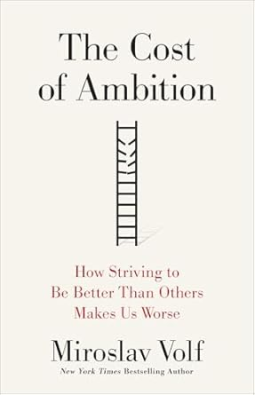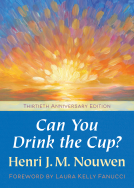
The Cost of Ambition
How Striving to Be Better Than Others Makes Us Worse
by Miroslav Volf
This title was previously available on NetGalley and is now archived.
Send NetGalley books directly to your Kindle or Kindle app
1
To read on a Kindle or Kindle app, please add kindle@netgalley.com as an approved email address to receive files in your Amazon account. Click here for step-by-step instructions.
2
Also find your Kindle email address within your Amazon account, and enter it here.
Pub Date 20 May 2025 | Archive Date 5 Sep 2025
Baker Academic & Brazos Press | Brazos Press
Talking about this book? Use #TheCostofAmbition #NetGalley. More hashtag tips!
Description
Christianity Today 2025 Book Award Winner (Popular Theology)
"[A] smart take on a world obsessed with forward motion."--Publishers Weekly
Many people believe that ambition--striving to be better than others--improves us and advances society. But what if it actually makes us worse?
In The Cost of Ambition, world-renowned theologian and award-winning author Miroslav Volf argues that striving for superiority has negative consequences in all domains of life. Instead, we should strive for excellence. Volf explores
● what Søren Kierkegaard, John Milton, and the apostle Paul say about the cost of ambition;
● how we can achieve excellence rather than strive for superiority;
● how to stop being plagued by our own sense of inferiority to others; and
● why Christians must retrieve a humbler way of life.
Volf also examines what the teachings of Jesus and the stories in Genesis say on the matter. Volf explains how striving to be better than others devalues our achievements, surroundings, and relationships by turning them into mere means to an empty goal. This pursuit, though widely accepted in modern life, is at odds with key Christian convictions.
After exposing the toxicity of ambition, Volf uses contemporary examples to guide us toward striving for excellence.
Available Editions
| EDITION | Other Format |
| ISBN | 9781587434815 |
| PRICE | $24.99 (USD) |
| PAGES | 208 |
Available on NetGalley
Average rating from 5 members
Featured Reviews
By now, it's no secret that I'm a fan of world-renowned theologian and award-winning author Miroslav Volf. I discovered Volf because of my life for for Jurgen Moltmann, under whose guidance Volf received two advanced degrees.
If you know me well, you likely know that John Hiatt has long been one of my favorite musical artists. Over many years, Hiatt's music has served as a healer in my life and as a constant companion. In many ways, the same is true for the theological writing of Miroslav Volf.
With "The Cost of Ambition: How Striving to Be Better Than Others Makes Us Worse" explores why ambition is at odds with the Christian faith and why the quest for superiority has negative consequences in pretty much all areas of our lives.
Volf has long been recognized as a bridge-building theologian. I first discovered him with "End of Memory" and have devoured his writings ever since. He was a theologian to whom I reached out after a limb loss a few years ago (and he actually responded!). As it was for many, Volf's "Exclusion and Embrace" was a life-changing book.
Here, Volf writes accessibly and in a way I found somewhat convicting about how we can achieve excellence instead of striving for superiority. Furthermore, he dives into how we can end the cycle of feeling inferior to others while also pursuing a humbler way of living. He does a deep dive into how Kierkegaard, John Milton, and the apostle Paul all talk about the cost of ambition and drives hime again and again that seeking to be better than others is at odds with key Christian convictions.
Gently and with tremendous wisdom, Volf guides us toward excellence without that excellence needing to be better or the best. Time and again throughout "The Cost of Ambition," I found myself resonating with Volf's words and reflecting upon those areas of my life where the desire for superiority seems to cause me to surrender less and seek to control more.
I've never experienced a Volf writing that I didn't truly love. The same is true here. A relatively brief writing, "The Cost of Ambition" arrived at a time only weeks after my ordination as a deacon and my occasional overwhelming feeling I should "prove" myself and strive to be "best." Instead, I think Volf would say, I should strive for excellence and serve God with all my heart, mind, body, and soul surrendered to how I am to serve.
As always with Volf, perfect timing for yet another wonderful book from one of my very favorite authors.
 Reviewer 1281795
Reviewer 1281795
A warning against the competitive "up and to the right" mindset that so many of us have adopted. Lots to think about here.
(I received a free digital copy of this book from NetGalley in exchange for an honest review)
 Levi M, Reviewer
Levi M, Reviewer
The Cost of Ambition: How Striving to be Better Than Others Makes Us Worse by Miroslav Volf is an excellent and readable contribution that should hopefully find an audience both among lay parishioners and professional academics. Volf’s basic premise begins with a simple claim that the striving to better ourselves for superiority over another is a moral evil. Volf begins his book by describing the difference between striving for excellence (an exercise that is devoid of value statements) and striving for superiority (in which one strives for excellence so as to be perceived better than others). Volf comes in his introduction to make the claim that the purpose of his book is not so much to just look at how striving for superiority may cause social discord or potential advancement, but rather how it creates moral evils in us. The body of the book then contains 4 self-contained chapters that each examine an academic and their writing on this topic it across several disciplines. Volf begins with Kierkegaard, specifically honing in on his piece The Lily of the Field and the Bird of the Air. In Volf’s reading of Kierkegaard, he notes all of the ways in which the theme of jealous comparison works in the interaction of the Lily and the Bird. This of course leads t the eventual downfall of the Lily as it succumbs to the fatal wound of jealousy. The third chapter then moves to discussing the role of superiority in Satan and Eve in Milton’s depictions of them in Paradise Lost and Paradise Regained. The last two chapters of the book center in on the Apostle Paul and his writings on superiority in Romans, Philippians, and 1-2 Corinthians. His theological insight here is erudite and well-reasoned. The book then ends with a concluding chapter on the theme of superiority in the Gospels and Hebrew Scriptures and a short list of summative statements.
Volf crafts an engaging and exciting book that left me wanting more. Ultimately, I am not equipped to comment on the quality of his interpretation of Kierkegaard and Milton, but I am able to vouch for the quality of his use of Paul and the Hebrew Scriptures. As I walk away from this book, I am struck by the unadulterated call Volf leaves his reader with to imitate Christ and in kenotic fashion, divest themselves of their innate and sinful need for superiority over one another. Living in Western Capitalism, we have not only made a god to competition and strength, but also made it a necessity. I hope this book will encourage other readers to deeply consider that the call of Christ leads us to divest ourselves for the need of superiority. The need to have more. The need to accomplish more. The need to be seen as better. It all fades in the vision of Christ’s kingdom. Ultimately, The Cost of Ambition is high, according to Volf, but this well-reasoned book has left much food for thought as it brings together three unlikely conversation partners to provide a tentative way forward. I love this book.
 Jason A, Educator
Jason A, Educator
The Cost of Ambition is an accessible and understated contribution to the theology of the Christian life.
I want to write like Volf when I grow up. I always appreciate how methodically he considers the questions he writes about. He makes it easy to follow his reasoning, and he weaves in the thinking of others in a way that draws on primary sources so you hear their voices too, but summarizes the context so knowledge of the primary sources isn't required to follow the argument.
What's the harm in striving for superiority over others? This book explores this question from several vantage points. Paul, Milton and Kierkegaard are the main conversation partners, but some of Volf's other long-time friends chime in (Luther, Barth, Bonhoeffer, Nietzsche, Rousseau).
In considering this question, Volf also discusses God's actions in relation to human actions, and what faith in Jesus requires us to revise in our thinking about what is truly admirable.
"The appeal to revelation, to the presence of Christ and the Spirit removing the appearance of foolishness from God’s wisdom, is ultimately an invitation to trust. The way of Christ, his and his followers’ “descent” into service, cannot be intellectually and fully secured from without. Those who approach it without the Spirit and outside the “mind of Christ” will likely be “unable to understand” it (1 Cor. 2:14). The eyes of those who embrace Christ in the power of the Spirit will be opened, and they will recognize him as the crucified Lord of glory. In the same act, they will also discover themselves as the people whose glory and true excellence is to treat each other as if the other were more important than they are themselves. To such, another kind of glory, and a lasting one, is promised as well."
p. 141
This is worth a read. Quietly, without being controversial, it has built a new wing in my understanding of Jesus' glory and human worth.
The only thing I would've wished for in this book is a bit more description of the pursuit of excellence that Volf sets up as the alternative lifestyle to the pursuit of superiority. This lack doesn't detract from the persuasiveness of his argument, but it's the one piece that would've made this work feel complete.
I received a NetGalley ARC from the publisher free of charge.
 Yakub T, Educator
Yakub T, Educator
Many people believe that ambition--striving to be better than others--improves us and advances society. But what if it actually makes us worse?
This happens when someone want to get all things for himself and sacrifice others for his ambitions. This is the cost of ambition, and Volf do a good job in discuss about it.
Readers who liked this book also liked:
Michaela Renee Johnson
Nonfiction (Adult), Parenting, Families, Relationships, Self-Help







